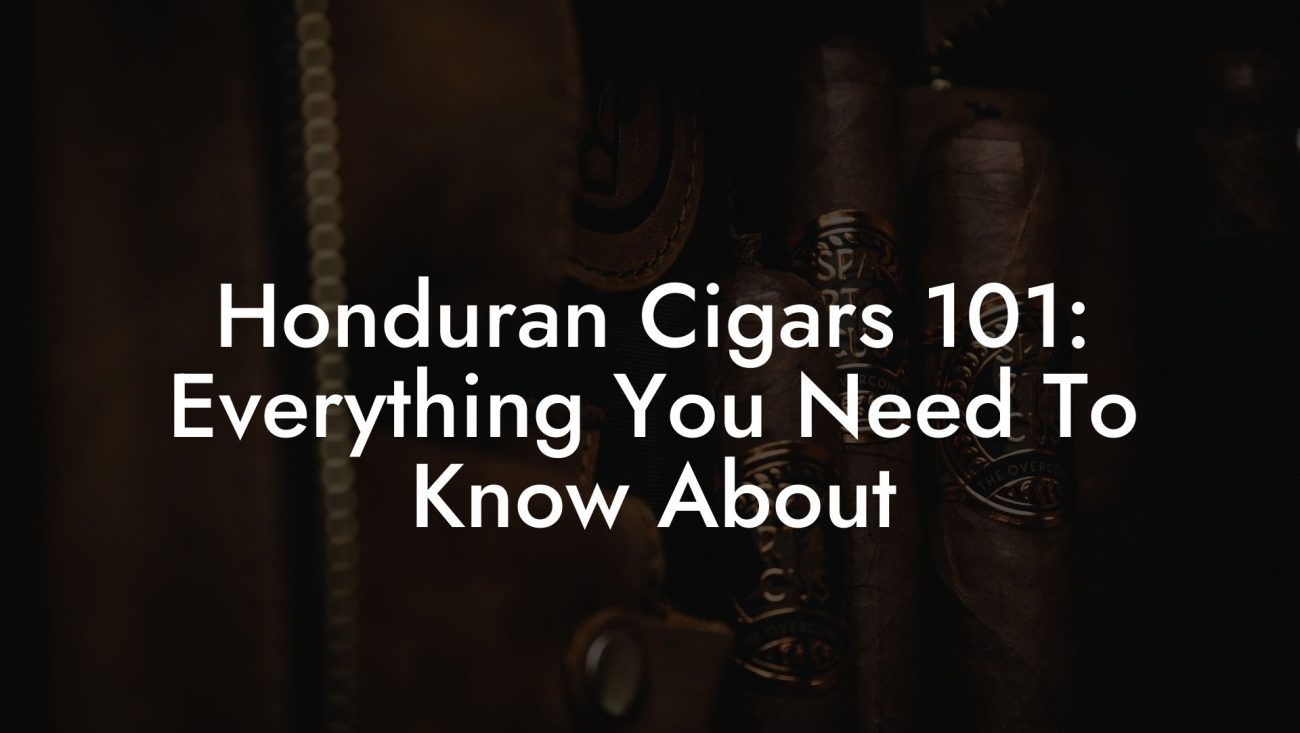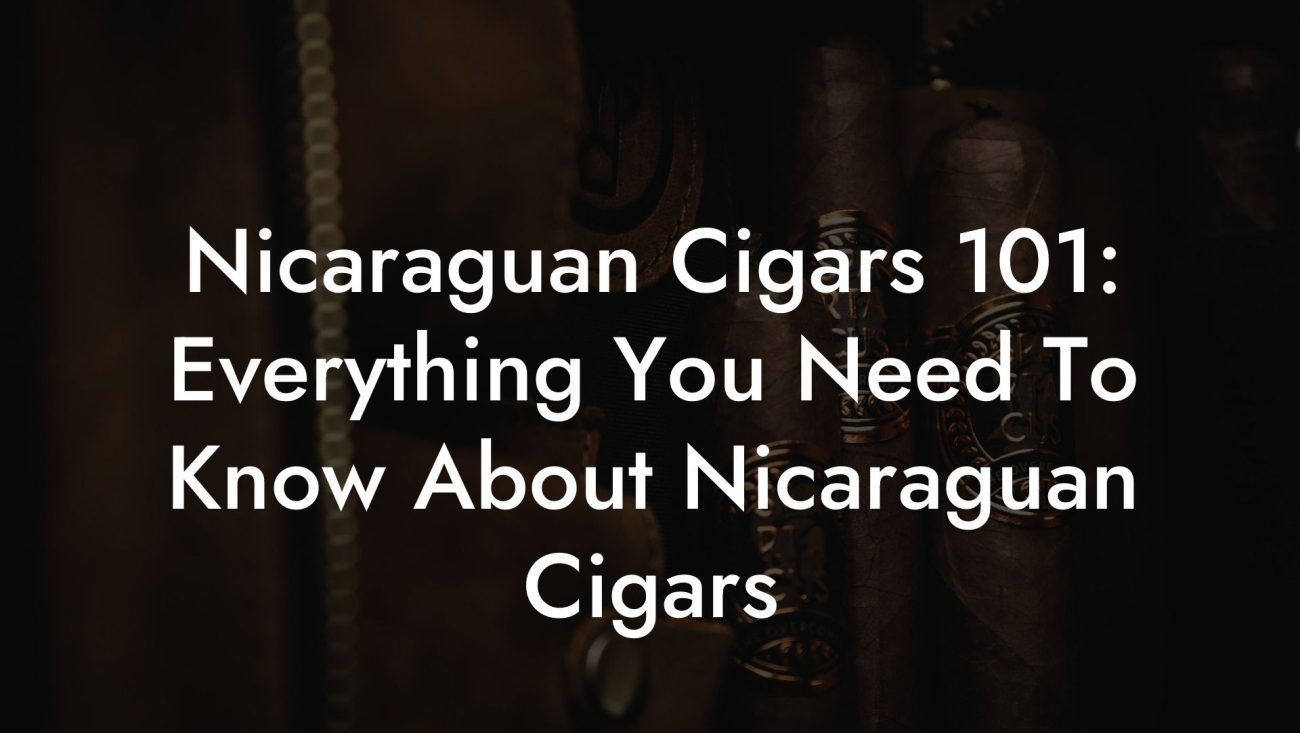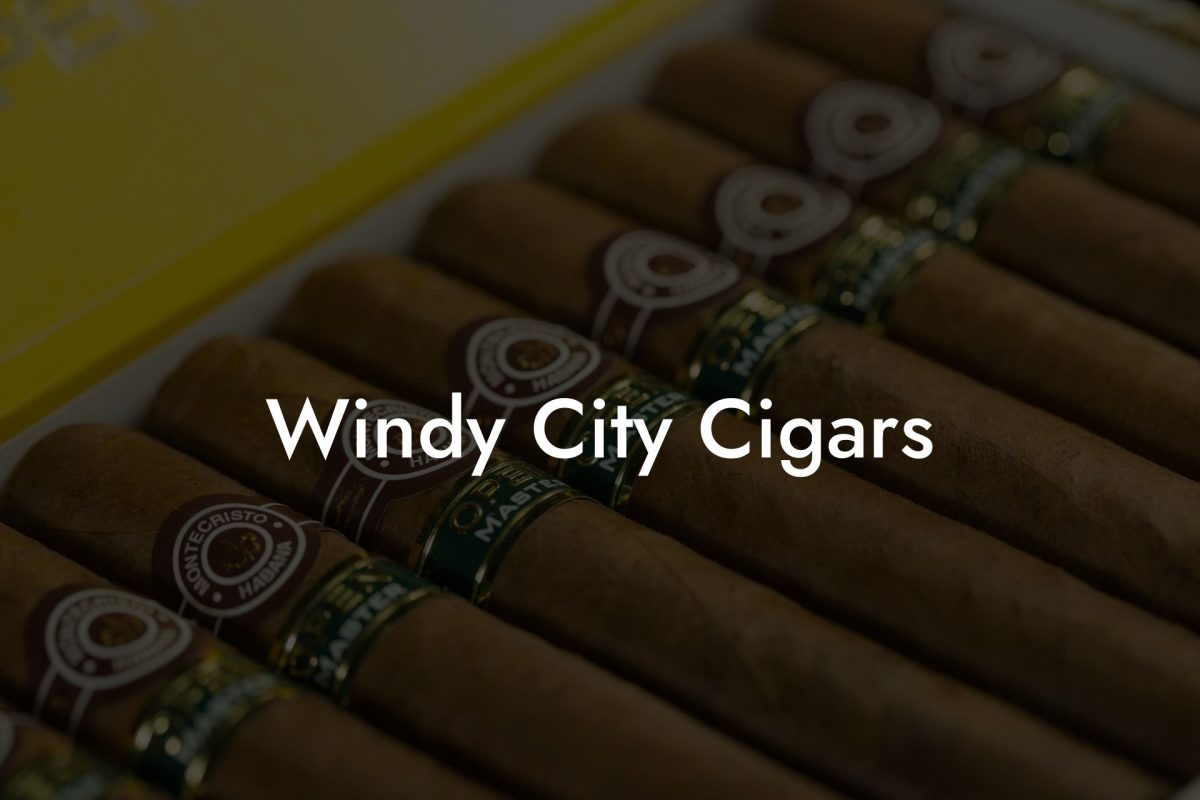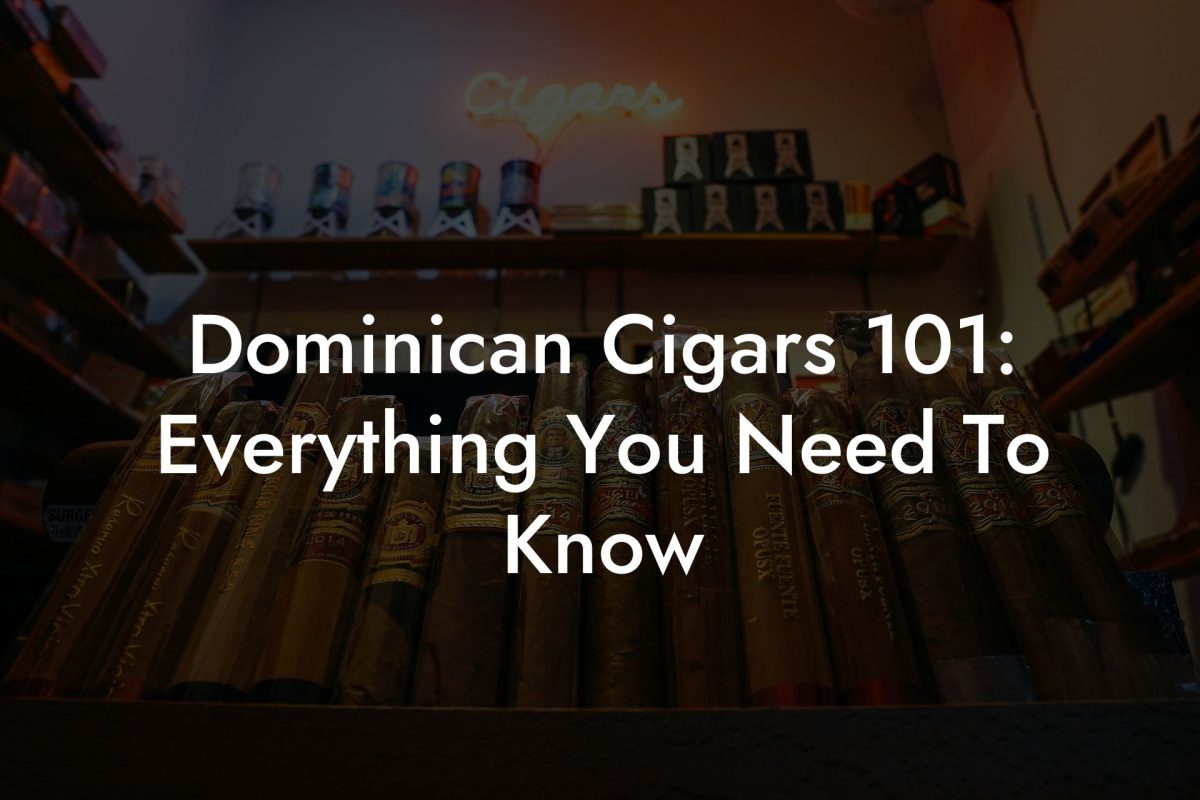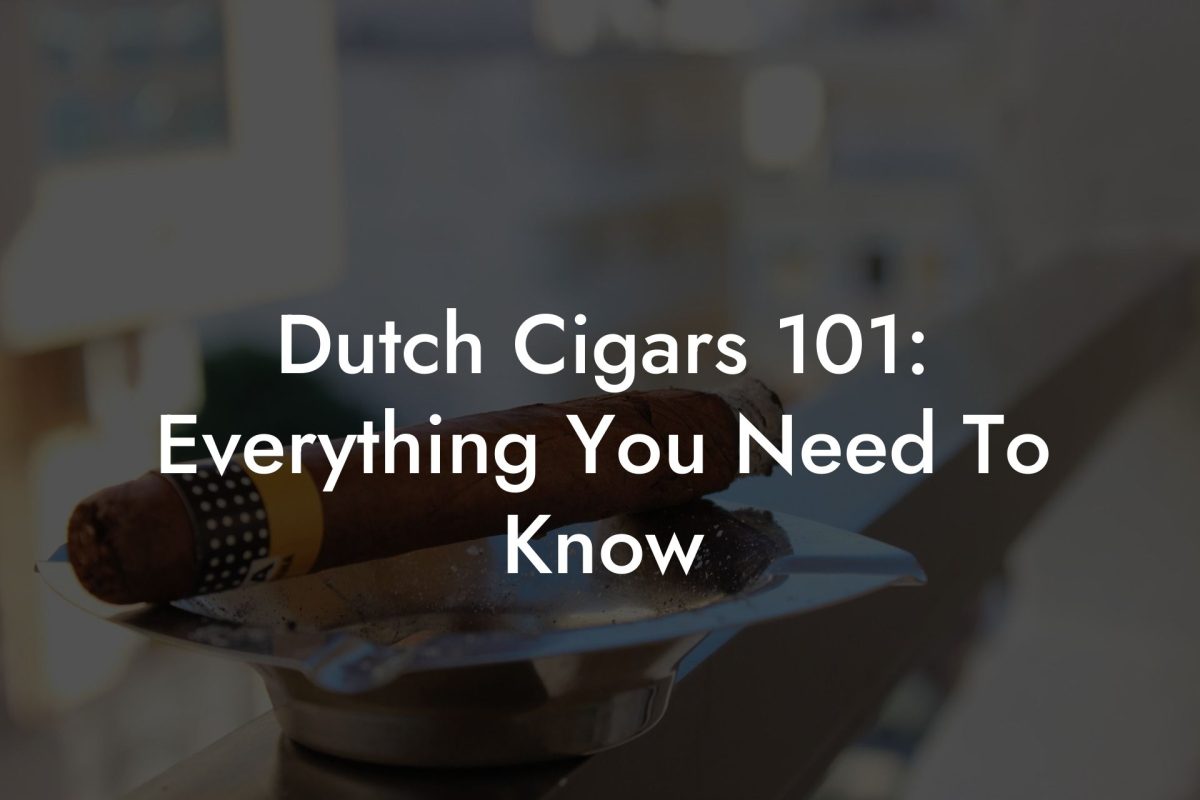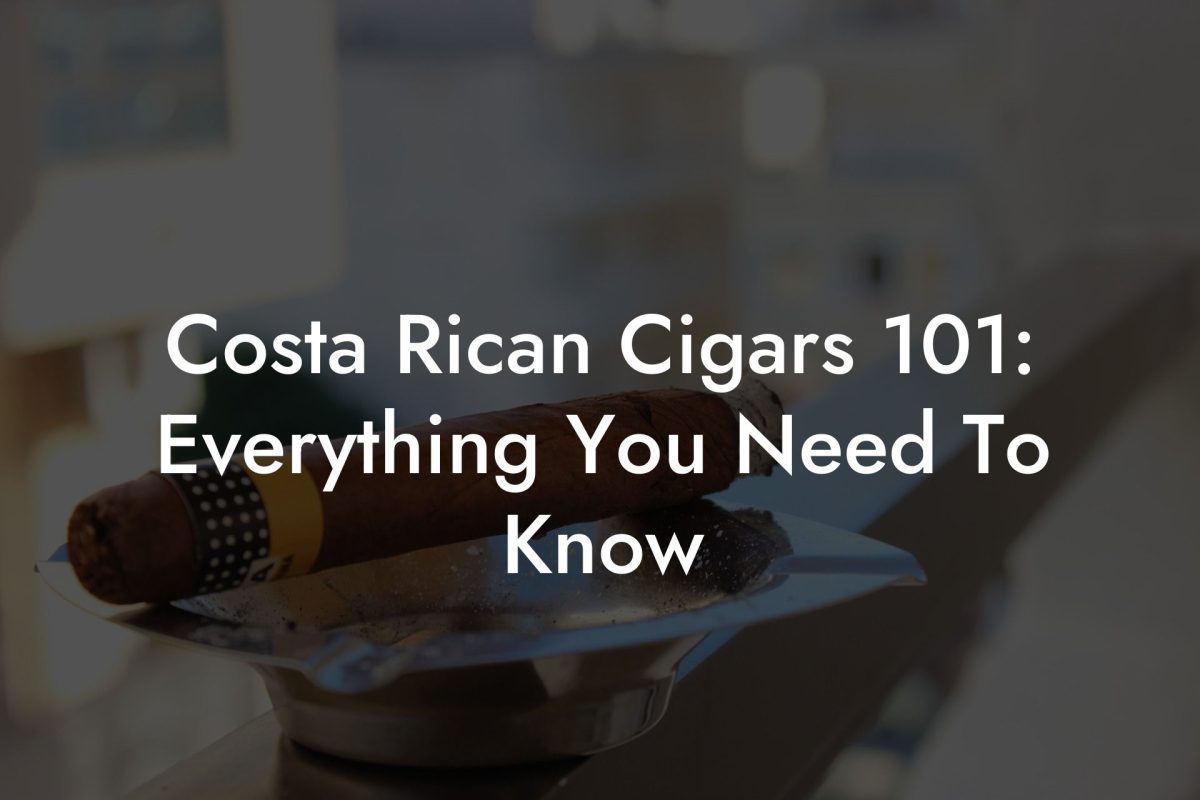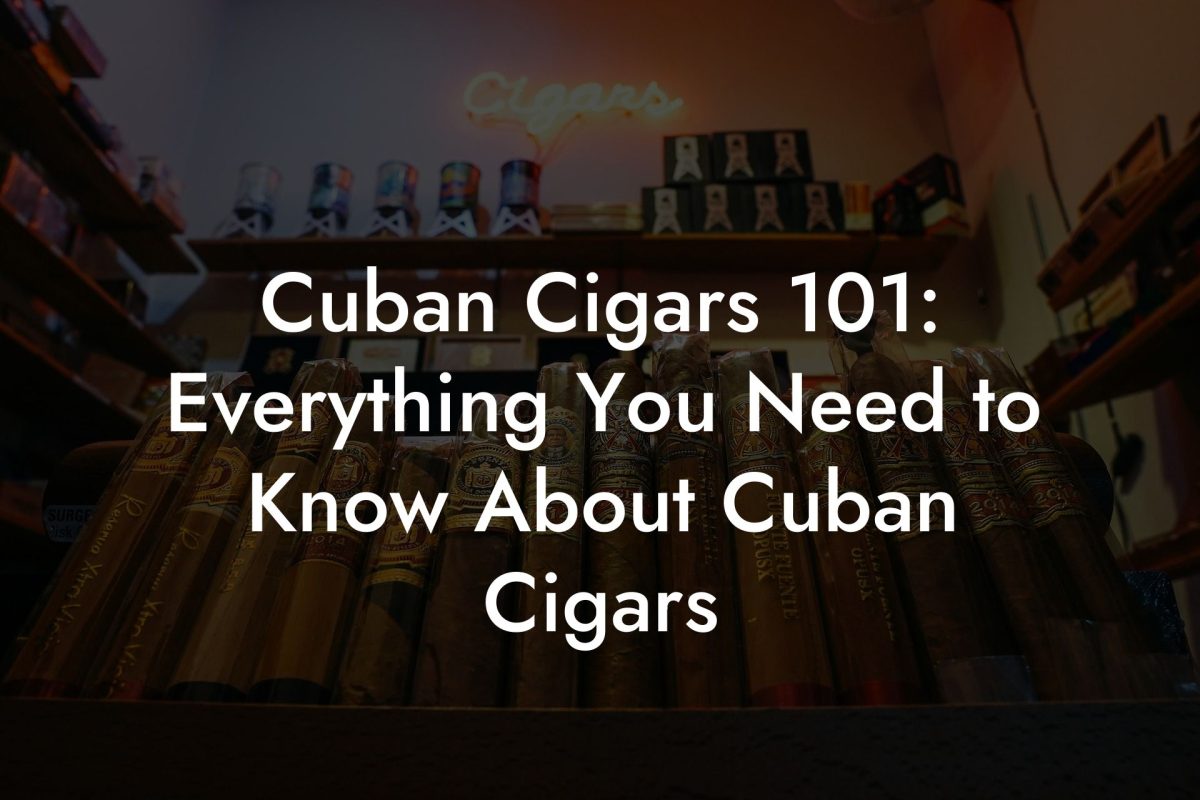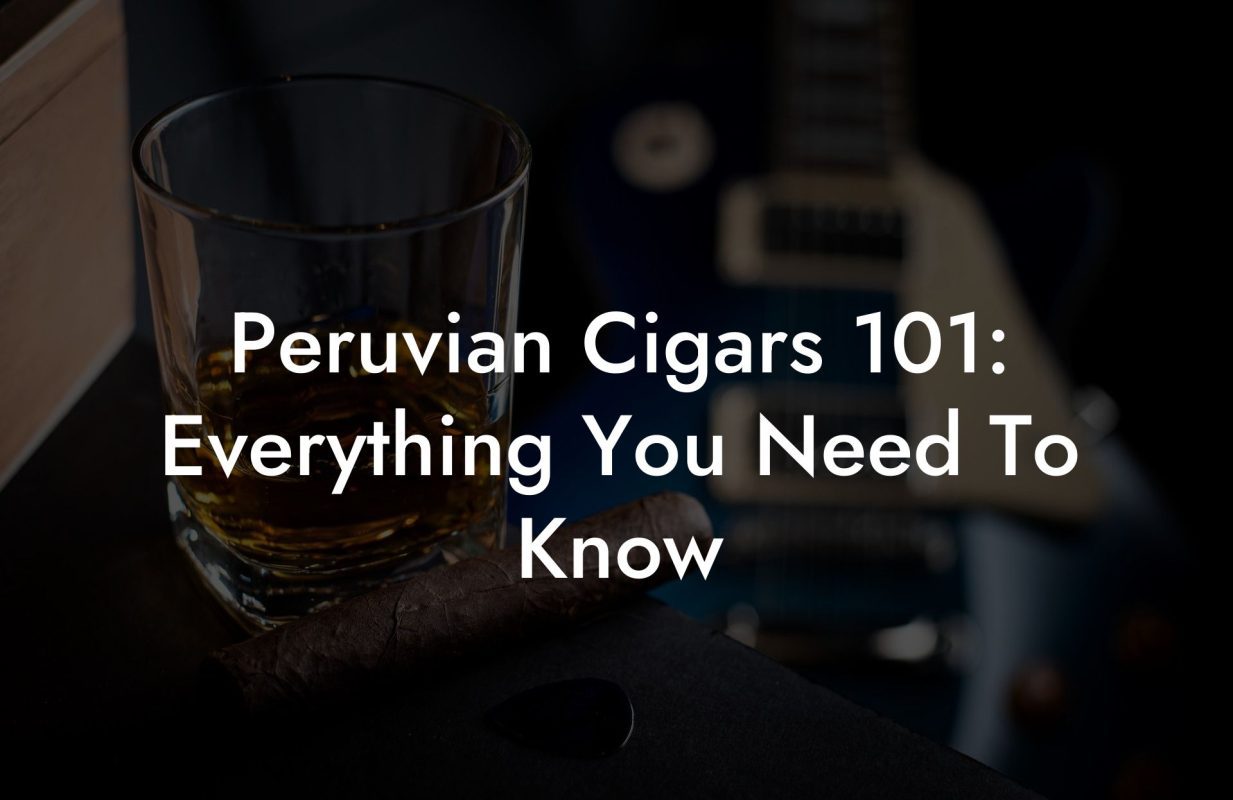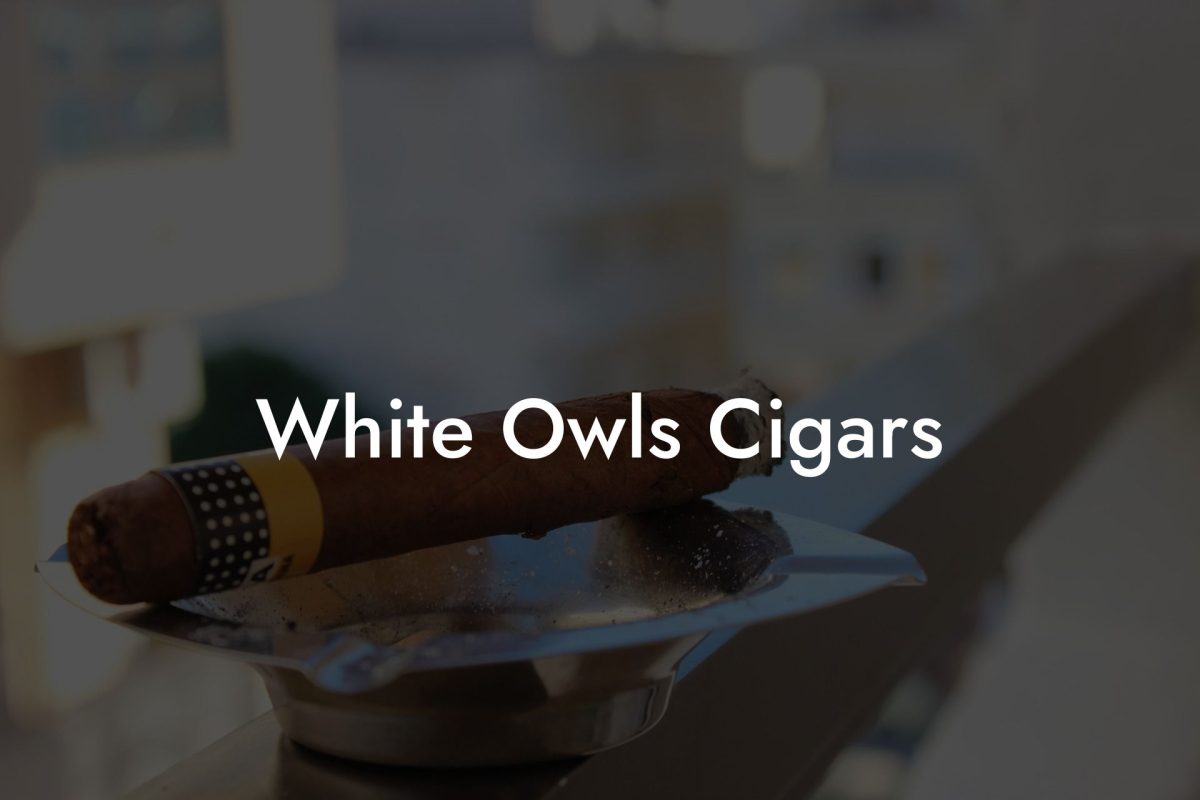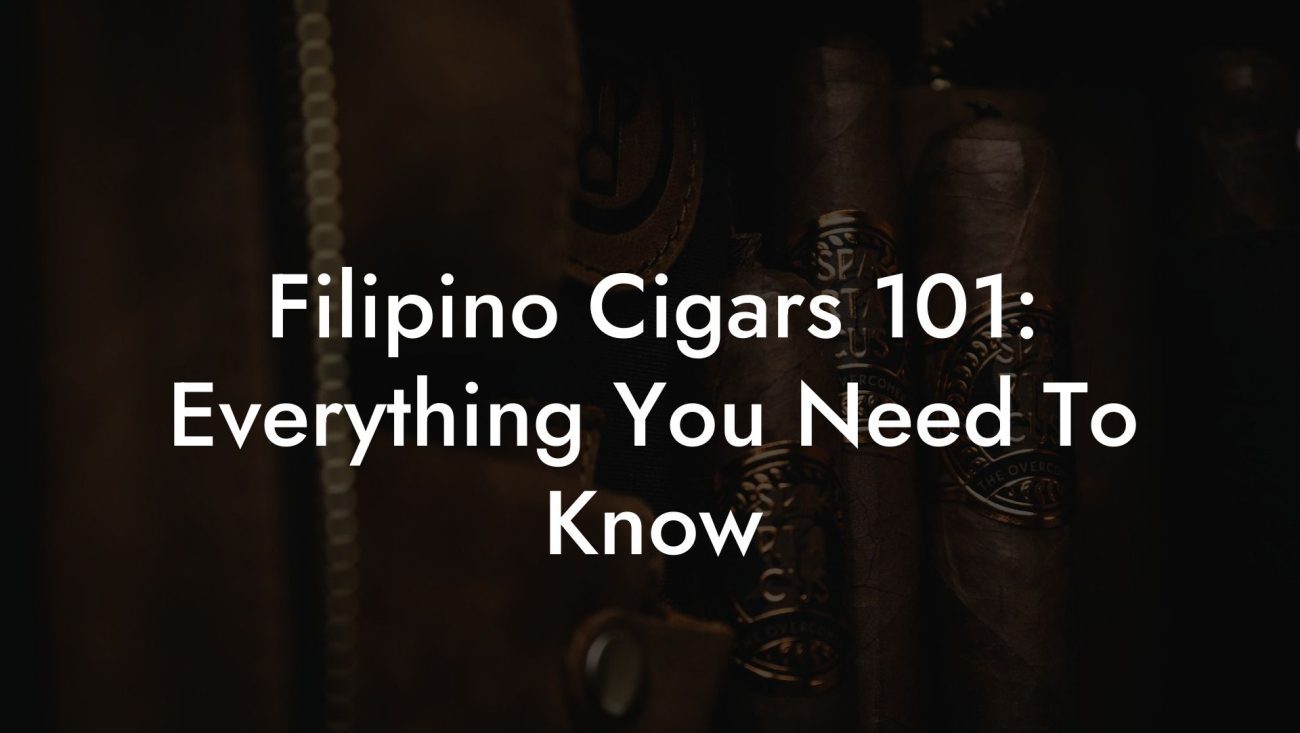Ever wondered if the mellow puff of a fine cigar is truly just a sophisticated indulgence or a sneaky ticket to addiction? Strap in for an unfiltered exploration of the world of cigars, a realm where culture, craft, and chemistry collide in a dance that’s as enticing as it is perplexing. Whether you're scrolling through TikTok, hitting up a trendy lounge, or just curious about what fuels those Instagram-worthy cigar moments, we’re breaking down the facts. Let’s cut through the smoke and get real about whether cigars are addictive.
Are Cigars Addictive Table of Contents
The Art and Culture of Cigars: More Than Just Smoke
Are Cigars Addictive? The Big Question Unwrapped
The Science of Nicotine in Cigars: Friend or Foe?
Addiction Myths vs. Cigar Facts
The Social and Psychological Dimensions of Cigar Smoking
Health Implications: Beyond Addiction to Overall Well-Being
Understanding Moderation and Responsible Enjoyment
Integrative Approaches to Quitting or Moderating Cigar Use
Delving Deeper: Expert Opinions and Research Insights
Resources and Community Support: Your Next Steps
The Economic, Environmental, and Ethical Angles
Your Personal Cigar Journey: Self-Reflection and Balance
The Art and Culture of Cigars: More Than Just Smoke
Cigars are not your run-of-the-mill cigarettes, they're more like the craft beer of tobacco. Rich in tradition and celebrated for the artisanal flair of their production, cigars have been a status symbol, a relaxation ritual, and a topic of heated debates for centuries. Today, they might even fit right in with your artisanal latte and vintage finds.
To get a full picture, let's take a quick detour down history lane. For centuries, cigars have been synonymous with celebrations, power deals, and laid-back gatherings. From the golden age of Hollywood to the modern influencer scene, cigars evoke an image of sophistication, rebellion, and a touch of nostalgia. Despite their posh reputation, the composition and addictive potential of cigars raise questions that go beyond mere aesthetics.
In this digital age, where every lifestyle choice is scrutinized, whether you're #vibing at a rooftop bar or curating your perfect Instagram grid, understanding the layered world of cigars is more relevant than ever.
What Exactly Are Cigars?
At their core, cigars are tightly rolled bundles of cured and fermented tobacco leaves, wrapped in a tobacco leaf or a similar substance. Unlike cigarettes, which often use machine-made paper, cigars embody a hand-rolled tradition with an emphasis on craftsmanship. This artisanal approach extends from the selection of tobacco leaves to the intricacies of the rolling process, ensuring each cigar is a unique masterpiece.
But there’s more than meets the eye (or the nostrils). Cigars come in a wide array of shapes, sizes, and flavor profiles. From the robust, full-bodied experiences to smoother, more aromatic blends, every cigar tells a story. And this story includes its origins, the region where it was grown, and the expertise of the torcedores (master rollers) who bring it to life.
For those of us drawn to aesthetics and storytelling, the cigar is almost a piece of art. But while the artistry is celebrated, it's impossible to ignore the underlying chemistry, nicotine and other compounds that stir up a bit of controversy when it comes to addiction.
Are Cigars Addictive? The Big Question Unwrapped
When it comes to cigars, the million-dollar question is: are they addictive? The answer isn’t as black-and-white as a monochrome filter on your latest Instagram post. Instead, the story is wrapped in layers of science, personal habits, and cultural context.
Here’s the deal: cigars contain nicotine, a potent stimulant that can lead to dependence. However, the way aficionados typically enjoy cigars, often as an occasional indulgence rather than a daily habit, plays a crucial role in determining whether addiction sets in. It’s a bit like comparing sipping a gourmet cocktail at a special event to guzzling down a can of soda on the daily.
In essence, the potential for addiction largely depends on your usage patterns. Frequent smokers might be at a higher risk for nicotine dependence, while those who reserve cigars for rare celebrations could be less vulnerable. Yet, even occasional use isn’t without risk, as nicotine’s addictive nature doesn’t discriminate by frequency.
This section aims to demystify the science behind nicotine, the factors that contribute to addiction, and why some cigar enthusiasts may never crack the “addict” label while others might find themselves stuck in a repetitive cycle.
The Science of Nicotine in Cigars: Friend or Foe?
Let’s dive into the nitty-gritty: nicotine, the chemical compound that fuels both the pleasure and the peril of smoking. In cigars, nicotine content can vary widely depending on the blend, cut, and fermentation process. What complicates matters is the method of consumption; many cigar lovers spit out the initial smoke, aiming for flavor rather than inhaling deeply.
Despite this practice, the nicotine is still absorbed through the lining of the mouth, meaning it can enter your bloodstream and work its magic, or mischief, depending on your perspective. For those already familiar with nicotine’s addictive potential in cigarettes, it’s important to understand that while the mode of intake differs, the physiological effects remain significant.
Research shows that even intermittent exposure to nicotine changes the brain’s chemistry over time. It can alter receptor activity, potentially setting the stage for dependence. However, the onset of addiction also depends on other factors like genetic predisposition, mental health, and environmental cues. Essentially, the cigar’s nicotine may be less likely to hook you if it’s enjoyed in moderation, but moderation is a slippery slope in a world of influencers promoting “treat yourself” moments.
So, does a casual cigar lead to a full-blown addiction? Not necessarily. But here’s the kicker: because the nicotine is potent, even seemingly benign use can sometimes escalate if you’re not careful. And like any addictive substance, what starts as the occasional indulgence could transition to a more habitual behavior, especially when stress, social settings, or a desire to blend in with a cool crowd come into play.
Addiction Myths vs. Cigar Facts
Pop culture is drenched in myths about cigars, from the notion that they are purely a leisurely luxury with no real addictive pull to the equally misleading belief that anything involving tobacco is a guaranteed ticket to dependence. Let’s set the record straight.
The Myth: Cigars Are Only for Special Occasions
Yes, cigars work perfectly as celebration accessories, think weddings, promotions, or fancy night outs, but that doesn’t exempt them from the risk of addiction. Just because you only light up at the occasional event doesn’t mean nicotine’s sneaky chemistry can’t work overtime. Infrequent use can seem harmless until subtle changes in behavior start creeping in.
The Myth: Cigars Aren’t as Addictive as Cigarettes
This popular belief overlooks a significant factor: while the consumption pattern is different, the nicotine itself is the same addictive compound regardless of the smoking medium. Cigarettes are designed for rapid, continuous delivery, whereas cigars provide a slower, lingering dose. Yet, if you’re consistently exposing yourself to nicotine, even at lower levels, the risk of dependence remains.
The Myth: Only “Weak” Smokers Get Addicted
Nicotine addiction isn’t a question of willpower or strength. It’s a physiological response that can affect anyone, irrespective of how “mature” or “in control” they might seem. Even those who pride themselves on their discerning palate can find themselves ensnared by nicotine’s charm if usage escalates.
In debunking these myths, it’s clear that the conversation around addiction isn’t about casting cigars as villains or saints, but rather understanding the delicate balance between pleasure and potential harm.
The Social and Psychological Dimensions of Cigar Smoking
Beyond the chemical cocktail in every cigar lies a social phenomenon that shapes how we perceive and engage with them. Cigars have long been symbols of status and relaxation, cementing their place in high-powered boardrooms, upscale parties, and even the occasional chill session at a local lounge.
For many, smoking a cigar isn’t just about consuming tobacco, it’s about participating in a ritual that signifies celebration, reflection, or even camaraderie. This social aspect plays a role in addiction as well. When an activity is culturally endorsed and glamorized, the psychological pull to repeat it can amplify the biochemical signals of nicotine.
Think about it: the ambiance, the aesthetics of slow-burning embers, the artisanal craftsmanship, it’s all designed to create an experience that’s memorable. And memorable experiences can sometimes turn into habits. When a behavior is interwoven with social bonding and relaxation, it becomes tougher to gauge whether you’re indulging in a one-off treat or embedding a recurring ritual in your routine.
In this age of social media, where visuals speak louder than words, many millennials and Gen-Z-ers are drawn to the “vibe” of cigar culture. The allure of sophisticated living, coupled with high-end gatherings and those perfectly curated moments, can nudge someone into a pattern that edges beyond casual enjoyment.
Health Implications: Beyond Addiction to Overall Well-Being
While the debate around addiction is central, it’s equally essential to talk about the overall health implications of cigar smoking. Yes, occasional cigar smoking might be seen as a mild indulgence by some, but no matter how “celebratory” the context, tobacco use carries inherent risks.
Unlike cigarettes, which are often inhaled deeply into the lungs, cigar smokers typically enjoy the flavor through swishing smoke around the mouth before exhaling. Despite this, harmful substances are still absorbed through the oral tissues, potentially increasing the risk of cancers such as oral, throat, and esophageal cancer. Add in cardiovascular risks, and it’s clear that cigars aren’t entirely benign.
It’s important to note that moderate use might not lead to the same hazards as heavy cigarette smoking, but that does not render the health risks null. In fact, even infrequent use can, over time, sow the seeds for long-term health issues. Moreover, the addictive nature of nicotine means that what starts as “just one for a celebration” could slip into more regular consumption, compounding the risks.
For the health-conscious members of Gen-Z and millennials who are savvy about wellness trends, understanding these implications is key to making informed decisions. We’re all for living our best lives, but knowing when to put a cigar down might just be part of a mindful lifestyle.
Understanding Moderation and Responsible Enjoyment
So, if cigars carry risks even when enjoyed occasionally, how do you balance the scales between a legitimate hobby and a potential habit? The answer lies in moderation and self-awareness. Responsible cigar smoking is similar to enjoying gourmet food and fine wine, it’s about savoring the experience without letting it become a crutch.
Moderation means setting boundaries on usage, being aware of why you’re lighting up, and understanding the signals your body sends. For many cigar enthusiasts, self-monitoring is key: keeping track of consumption habits, being mindful of triggers (stress, social cues, etc.), and even alternating with nicotine-free breaks can help prevent the slide into addiction.
Moreover, recognizing that the act of smoking a cigar is as much a mental and emotional ritual as it is a physical indulgence allows you to avoid using it as a stress-relief mechanism. Instead, pair your cigar sessions with other mindful practices, whether that’s a brisk walk outdoors, a deep breathing exercise, or simply disconnecting from the digital clamor.
A little self-check can go a long way in ensuring that cigar smoking remains an occasional treat rather than a regular habit. After all, living your best life is all about balance, isn’t it?
Integrative Approaches to Quitting or Moderating Cigar Use
For those who find that the occasional indulgence has tipped the scales towards frequent use, there’s good news: there are plenty of integrative and holistic strategies to help you regain control. Think of these as your “smoke break” strategies for when you need to quit or simply cut back on the habit.
First up, behavioral therapy can be immensely helpful. Cognitive Behavioral Therapy (CBT) is designed to help you identify triggers and replace the ritual of lighting a cigar with healthier alternatives. Imagine swapping that urge for a quick meditation break or a brisk walk while scrolling through your favorite memes.
Mindfulness practices, such as meditation and yoga, are also potent allies in the quest to moderate or quit. By reducing stress and offering a sense of presence, these practices can help you understand your cravings without giving in to them. Pairing these with supportive communities, whether online or in-person, can provide the encouragement and accountability needed to stay on track.
Additionally, some find success in integrative approaches that combine nutritional adjustments, physical exercise, and even alternative therapies like acupuncture. These methods not only help curb nicotine cravings but also promote overall well-being, guiding you towards a healthier, smoke-free lifestyle.
Quitting or moderating cigar use isn’t an overnight miracle, it’s about building a toolkit, one that allows you to enjoy life without feeling chained to a habit. Acknowledging the double-edged nature of nicotine can be the first step towards reclaiming control.
Delving Deeper: Expert Opinions and Research Insights
The conversation around cigars and addiction isn’t confined to personal experiences, it’s a hot topic in the research world as well. Health professionals and researchers have long studied tobacco use and the nuanced differences between cigars and other forms of tobacco.
Experts point out that while the risk of addiction may be lower for occasional cigar smokers compared to daily cigarette use, the presence of nicotine guarantees that some risk is always on the table. Scientific studies have shown that even intermittent exposure to nicotine can subtly alter brain chemistry, potentially paving the way for dependence if the behavior escalates.
Interviews with tobacco researchers reveal that context matters, a lot. Factors such as the environment, the social setting, genetic predisposition, and even marketing tactics all contribute to how nicotine affects different people. For the modern consumer, this means that decisions around cigar smoking should be informed by a comprehensive view of both personal habits and the broader scientific consensus.
Notably, many researchers emphasize that education is the key weapon against unwanted addiction. By understanding the science behind nicotine and being honest about one’s smoking habits, individuals are better equipped to enjoy cigars responsibly or opt for cessation strategies when needed.
In a world where every lifestyle choice is scrutinized, from your gym routine to your dietary habits, having an informed perspective on cigar smoking empowers you to make choices that resonate with your values and health goals. Whether you’re a dedicated aficionado or a curious onlooker, staying updated with expert insights can help steer your journey in the right direction.
Resources and Community Support: Your Next Steps
Ready to take action, whether it’s learning more about responsible cigar use, cutting back, or even quitting altogether? You’re not alone. There’s an abundance of resources and communities dedicated to supporting individuals on this journey.
Start by exploring trusted websites, local support groups, and online forums where cigar enthusiasts and ex-smokers share experiences, tips, and personal success stories. Many health organizations offer educational material that breaks down the science behind nicotine and addiction in an accessible, no-nonsense style.
For those looking to dive deeper, consider speaking with a healthcare provider who specializes in smoking cessation or addiction therapy. They can offer personalized advice, prescribe therapies if necessary, and point you towards integrative practices that have worked for others.
Additionally, social media has become a powerhouse for peer support. Platforms like Reddit, Instagram, and Facebook host communities where you can ask questions, get real-time feedback, and connect with people navigating similar challenges. This kind of solidarity and shared knowledge can be instrumental in maintaining a healthy balance between enjoying life's luxuries and safeguarding your well-being.
Finally, consider exploring mindfulness apps, digital health tools, and local wellness programs that fuse holistic approaches with modern technology. Whether your goal is moderation or total cessation, embracing a multi-faceted support system might just be the key to achieving the lifestyle you envision.
The Economic, Environmental, and Ethical Angles
While the conversation typically centers on health and addiction, there’s a broader perspective that many modern consumers find compelling. The production, trade, and consumption of cigars have significant economic, environmental, and ethical dimensions.
Economically, the high-end cigar market represents a niche yet influential segment of the luxury goods industry. Artisanal manufacturers, small-scale growers, and boutique retailers often rely on the demand for premium cigars to sustain their operations. For consumers, this means that your choice to indulge, or abstain, can have ripple effects on local economies and artisanal traditions.
On the environmental front, tobacco farming and cigar production come with their own sets of challenges, from water usage to waste management. The global movement towards sustainability is slowly influencing these industries, with some manufacturers investing in eco-friendly practices and organic cultivation methods. As a discerning modern consumer, being aware of these factors adds another layer of consideration to your decision-making process.
Ethically, the conversation touches on labor practices, fair trade, and corporate responsibility. Many cigar aficionados are increasingly mindful of where, and how, the products they enjoy are produced. Supporting brands that prioritize ethical labor practices and sustainability initiatives can align your indulgence with your broader values.
In summary, while the question of addiction is paramount, it’s also important to understand that cigar smoking is enmeshed in a web of cultural, environmental, and ethical factors. Your choice to enjoy, or moderate, this habit can be part of a broader statement about who you are and what you stand for.
Your Personal Cigar Journey: Self-Reflection and Balance
At the end of the day, the decision to smoke cigars and the potential for addiction is a deeply personal one. It’s about understanding your motivations, setting clear boundaries, and being honest with yourself. Are you in it for the taste, the ritual, the social bonding, or perhaps as a moment of escape from everyday stress?
Self-reflection is an invaluable tool. Keeping track of your cigar consumption, noting the contexts in which you indulge, and reflecting on any changes in your behavior can provide insight into whether your habit is remaining a casual pleasure or slowly veering into dependence.
A mindful approach includes regular self-check-ins. Ask yourself: “Am I smoking for enjoyment or out of routine?” “Is the occasional cigar enhancing my life, or is it gradually becoming a crutch?” Answering these questions honestly can help you adjust your habits before they spiral out of control.
And remember, the journey to finding balance is an ongoing process. It’s not about guilt or judgment; it’s about making choices that align with your evolving goals and values. Whether you decide to continue as a connoisseur of occasional puffs, scale back, or quit entirely, the key is to remain informed and intentional.
FAQs: Your Cigar Addiction Queries Answered
We know you have questions swirling as thick as cigar smoke. Here are some frequently asked questions about cigars and addiction to help clear the air:
1. Are cigars really addictive?
Yes, cigars contain nicotine, which is inherently addictive. However, the risk of addiction largely depends on how often you smoke. Occasional cigar smoking might pose a lower risk compared to regular cigarette use, but the addiction potential remains.
2. How does nicotine in cigars compare to cigarettes?
Both cigars and cigarettes deliver nicotine, but the delivery methods differ. Cigarettes are designed for inhalation and rapid absorption into the bloodstream, while cigars typically deliver nicotine more slowly through the lining of the mouth. Still, both carry a risk of dependency.
3. If I only smoke cigars occasionally, am I at risk of becoming addicted?
While occasional smoking reduces overall exposure, there is still a chance of developing a habit. Moderation and self-monitoring are essential to avoid a subtle shift towards dependence.
4. Are there health risks associated with cigar smoking apart from addiction?
Absolutely. Even without significant inhalation, cigar smoking can increase your risk for oral, throat, and esophageal cancers, as well as cardiovascular issues.
5. Can I quit smoking cigars if I feel like I'm becoming dependent?
Yes, there are many strategies to help you quit or moderate your use. Behavioral therapy, mindfulness practices, support groups, and even nicotine replacement therapies can play a role.
6. What are the signs that my cigar smoking may be turning into an addiction?
Signs include a growing urge to smoke more frequently, feeling anxious when you don’t have one, or using cigars as a primary way to manage stress. If you notice these patterns, it might be time to re-evaluate your habits.
7. Do occasional cigar smokers suffer from withdrawal symptoms?
Withdrawal symptoms are generally less severe in occasional smokers; however, any regular exposure to nicotine might cause mild irritability or cravings when not smoking.
8. What lifestyle changes can help reduce the risk of addiction?
Moderation, pairing smoking with other healthy relaxation techniques, and self-monitoring your consumption can help reduce the risk. Exploring stress management and holistic wellness practices also contributes to healthier habits.
9. Is there a difference between cigars and cigarillos when it comes to addiction?
Cigarillos are generally smaller and may have higher concentrations of nicotine relative to their size. This can make them more potent in terms of nicotine delivery, potentially increasing the risk of addiction if used frequently.
10. Are there alternative nicotine-free options that mimic the cigar experience?
Yes, some companies offer herbal cigars or nicotine-free alternatives designed for flavor and ritual without the addictive component. Research these products thoroughly to see if they meet your needs.
Embracing Informed Choices in a Smoky World
At the intersection of culture, chemistry, and personal choice lies the world of cigars, a world as complex and layered as the leaves that compose them. Whether you’re a casual enthusiast who reserves cigars for celebratory moments, a curious observer dissecting the contributions of nicotine to behavior, or someone on the journey to rein in a dependence, being informed is your superpower.
Knowledge is the antidote to blind indulgence, and understanding the fine balance between enjoyment and addiction empowers you to make the choices that best align with your lifestyle and values. Remember, no matter how enticing the allure of a finely rolled cigar may be, staying aware of how it influences both your body and your culture is key to living a well-rounded, healthy life.
So next time you light up, take a moment to savor not just the flavor, but also the history, the science, and the vibrant culture that comes with it. Whether you decide to indulge responsibly, dial back your usage, or embark on a journey towards a nicotine-free lifestyle, let your choice be as thoughtful as it is stylish.
Your journey isn’t dictated by impulse, it’s steered by awareness, moderation, and an unyielding commitment to your health and well-being in a world where every puff tells a story.


